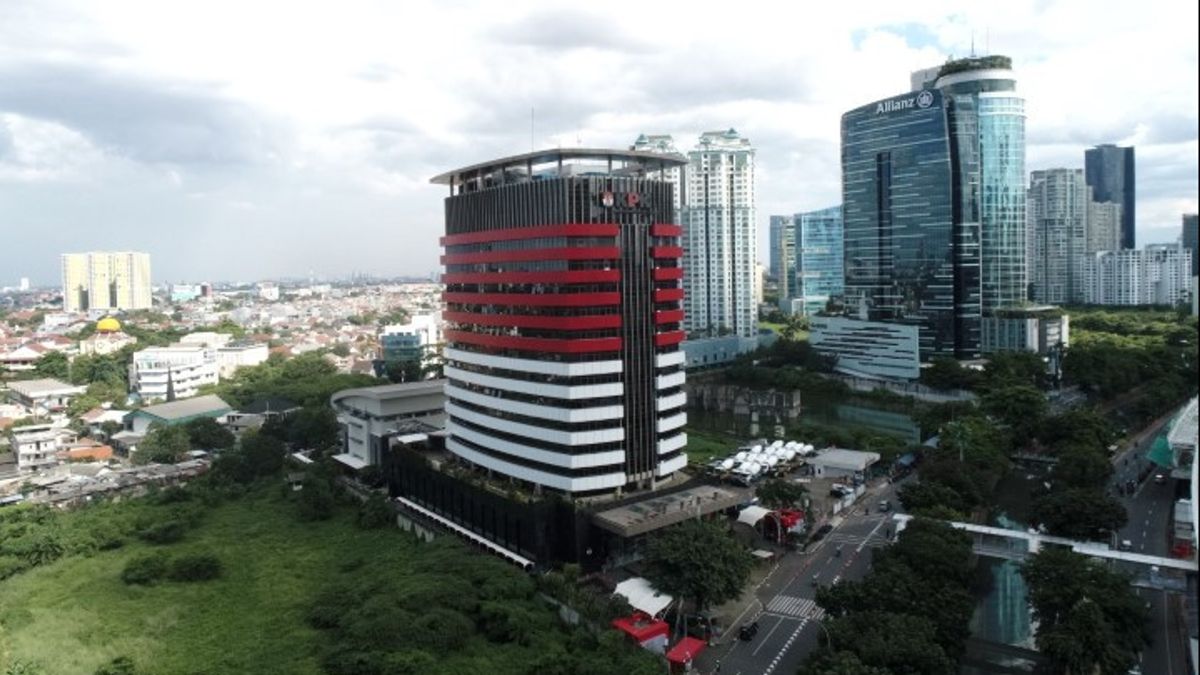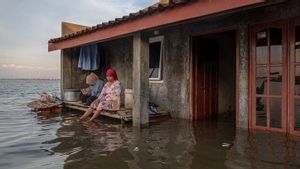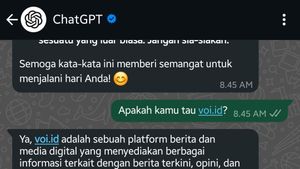JAKARTA - Member of the Supervisory Board of the Corruption Eradication Commission (KPK) Albertina Ho said that her party had reminded the KPK leadership to make commission regulations (Perkom) in accordance with the applicable laws.
He conveyed this in response to the polemic regarding the structural changes that occurred in the anti-graft body after the issuance of Perkom Number 7 of 2020 which was signed by KPK Chairman Firli Bahuri.
"In accordance with the duties of the supervisory board in the supervisory coordination meeting, (we, red) have reminded the leadership that Perkom be made in accordance with the law," said Albertina in a written statement to reporters quoted on Tuesday, November 24.
As the supervisory board, he agreed, this Perkom made the internal structure of the institution fattened because there were a number of additional positions including the addition of special staff positions.
"If you say that the organization is fat, yes. Because there are additional deputies and directorates, as well as inspectors and special staff," he said.
However, he did not want to rush to judge that this change in position would have an impact on the KPK's performance. This includes having an impact on positive results in the form of improving the performance of this institution. "We'll see," he said.
Furthermore, Albertina said that the supervisory board was not involved in the formation of this commission regulation. He said, this formation was the authority of the KPK leadership which must comply with the KPK Law Number 19 of 2019. "Dewas was not involved," he said.
Previously reported, through Perkom Number 7 of 2020 concerning the Organization and Work Procedure of the KPK, this anti-graft agency added 19 positions and positions not listed in Perkom Number 03 of 2018.
The 19 new positions and positions are Deputy for Education and Community Participation, Directorate of Educational Networks, Directorate of Socialization and Anti-Corruption Campaigns, Directorate of Community Participation Development, Directorate of Anti-Corruption Education and Training Networks.
Then there is also the Secretariat of the Deputy for Education and Community Participation, the Directorate of Anti-Corruption for Business Entities, the Deputy for Coordination and Supervision, the Directorate for Coordination and Supervision of Region IV, the Secretariat for the Deputy for Coordination and Supervision, the Information Management Directorate, the Directorate for Corruption Detection and Analysis, and the Center for Strategic Planning for Eradication. Corruption and Inspectorate.
In addition, the Perkom, which was signed by KPK Chairman Firli Bahuri on November 6 and promulgated on November 11, also regulates the presence of special staff who are directly responsible to the leadership.
Article 75 of Perkom 7/2020 states that this special staff number at most five people with various expertise such as information technology, natural resources and environment, corporate law and transnational crime, management and human resources, economy and business, and / or other expertise according to the needs of the KPK. They will later be appointed and dismissed by the Secretary General.
Meanwhile Article 76 details the duties and functions of special staff, such as giving consideration to strategic issues to preparing materials for KPK leadership meetings.
Later, this Perkom led to a polemic. Many parties considered that the regulation was made inconsistent with the KPK Law Number 19 of 2019 Article 26 which was not revised. This means that the fields that exist within the anti-graft agency should still be as before and need not be changed.
However, this polemic was answered by KPK Deputy Chairman Alexander Marwata. He explained that the change in organizational structure through this Perkom occurred as an effort to organize the organization to implement Law Number 19 of 2019 concerning the Second Amendment to Law Number 32 of 2002 concerning the KPK. In addition, he claimed that this structural change was carried out to increase the effectiveness and efficiency of task execution.
The English, Chinese, Japanese, Arabic, and French versions are automatically generated by the AI. So there may still be inaccuracies in translating, please always see Indonesian as our main language. (system supported by DigitalSiber.id)













